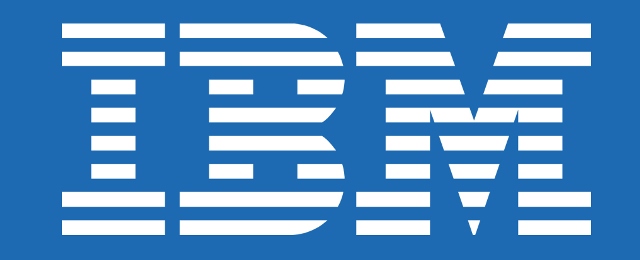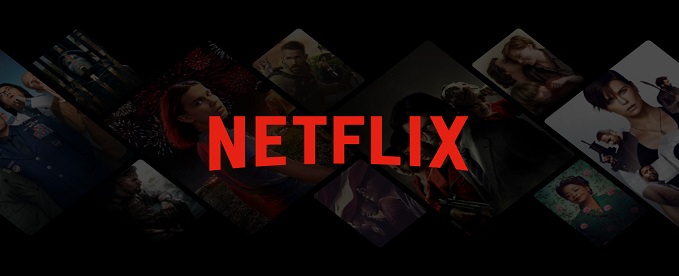Broadcasting
C-Suite Executives Declare One Vendor Approach to Cloud is Dead – IBM Study

According to the results of IBM’s new global study on cloud transformation that surveyed almost 7,200 C-suite executives across 28 industries in 47 countries – including more than 140 in Nigeria – there has been a drastic shift in business needs.

The study, conducted by IBM Institute for Business Value (IBV) in cooperation with Oxford Economics, revealed thatno respondents in Nigeria reported using a single private or public cloud in 2021, down from 38 percent in 2019 – establishing hybrid cloud as the dominant IT architecture.
The findings indicate that the cloud market has entered the hybrid, multicloud era and concerns around vendor lock-in, security, compliance and interoperability remain paramount.
The study also revealed that 59 percent of respondents noted the lack of interoperability among clouds was an obstacle to improving business performance in some or most parts of their cloud estate.
“Organisations across Nigeria have shown increased confidence in hybrid cloud models to deliver greater innovation while reducing costs, driving efficiency and ensuring security and compliance. This will drive the next wave of digital transformation for organisations here as they set out to deliver superior customer experiences,” says Dipo Faulkner, General Manager IBM West Africa.
The study found that a majority of respondents recognised that comprehensive to advanced cloud capabilities were required for the successful execution of digital initiatives – with 77 percent stating that this was crucial to building ecosystem platforms and 86 percent revealing this was required to improve customer experiences.
While the hybrid cloud approach has taken hold, respondents in Nigeria revealed that technology debt or legacy brownfields were the biggest obstacles to improving business performance – with 68 percent revealing that this was an obstacle in some or most parts of their cloud estate.
Cyber threats are at an all-time high 1
Infrastructure complexity is creating cracked doors that cybercriminals are exploiting. The study revealed the importance of data security, as 87 percent of respondents said data security being embedded throughout the cloud architecture is important or extremely important, in most cases, to successful digital initiatives.
Companies are denouncing vendor lock-in
According to the study, nearly 83 percent of respondents said workloads being completely portable with no vendor lock-in is important to the success of their digital initiatives. Only 50 percent of respondents reported battling with vendor lock-in, stating this is an obstacle to improving business performance in some or most parts of their cloud estate.
Public cloud adoption is evolving towards industry clouds
The study found that nearly 56 percent of respondents cited industry-related regulatory compliance as an obstacle to the business performance of their cloud estate.
The study revealed that enterprises need to assess how they use the cloud in terms of adoption, velocity, migration, speed, and cost savings opportunity. Other recommendations include:
- Focus on security and privacy – determine where your critical workloads reside and scrutinize who and what has access to them. Regularly test that security controls and privacy policies are being adhered to, but also that improperly configured assets and software vulnerabilities are being promptly addressed.
- Ask which workloads should move to the cloud – take inventory of the IT environment to successfully determine which workloads and applications will yield the most value in the cloud and which are better suited to stay on-premises.
- Make data work for you – analyze workloads using AI driven tools and best practices to determine where and how to put them in the right place for the right reason.
- Set a tactical approach – address the technology trade-offs, such as selecting the best approach to modernize specific applications and manage important issues like security, governance, and disaster recovery.
- Determine the right team – put a cross-disciplinary team of people to work rethinking how your enterprise creates value for its customers.
Broadcasting
NCC Warns DJs: Playing Music Without License Could Lead to 5-Year Jail Term

Nigerian Copyright Commission (NCC) has warned disc jockeys (DJs) against publicly playing music without proper authorization or a valid license.

NAN reports that John Asein, NCC director-general, gave the warning in an advisory issued in Abuja.
He said the commission’s attention had been drawn to the growing practice of DJs playing music in public spaces without obtaining copyright licences from their approved collective management organisations (CMOs).
Asein said under sections 9 and 12 of the Copyright Act, 2022, only the owner of copyright in a musical work or sound recording has the exclusive right to reproduce, perform, or communicate it to the public.
The NCC threatened to prosecute defaulters in a case that could lead to a N1 million fine or a 5-year jail term upon conviction.
“Engaging in any of these acts without the owner’s authorisation constitutes an infringement under the Act,” he said.
“Such infringement may constitute a civil wrong or a criminal offence under section 44 (7), punishable upon conviction by a fine of not less than N1 million or imprisonment for a term of not less than five years or to both.”
Asein advised DJs to obtain the necessary licences and pay royalties to the approved CMO before performing music publicly.
The NCC director-general added that the commission will arrest and prosecute anyone found violating the law.
“For the avoidance of doubt, the approved CMO for musical works and sound recordings in Nigeria is the Musical Copyright Society, Nigeria (MCSN),” he said.
“The Commission is aware that the Disc Jockey’s Association of Nigeria (DJAN), as the umbrella body representing DJs in Nigeria, has entered into a Memorandum of Understanding with MCSN.
“Under the arrangement, DJAN is authorised to work with MCSN to facilitate the payment of royalties by DJs nationwide, based on the tariff that DJAN had negotiated with MCSN.”
Broadcasting
Netflix Hikes Subscription Fees Again in Nigeria over “Market Conditions”

Netflix has increased its subscription fees in Nigeria for the third time since 2024, with the Premium Plan rising by 21.43%, from ₦7,000 to ₦8,500 per month.

This marks the streaming platform’s first price adjustment in 2025.
Other subscription tiers have also been affected.
The Standard Plan now costs ₦6,500, up from ₦5,500—a hike of 18.18%.
The Basic Plan has increased from ₦3,500 to ₦4,000, while the Mobile Plan moved from ₦2,200 to ₦2,500, reflecting increases of 14.29% and 13.64% respectively.
The latest adjustment aligns with Netflix’s broader global pricing strategy, which the company has linked to its ongoing investment in content and platform development. In a previous communication to investors, Netflix stated, “As we invest in and improve Netflix, we’ll occasionally ask our members to pay a little extra to reflect those improvements. Which in turn helps drive the positive flywheel of additional investment to further improve and grow our service.”
While the company did not explicitly cite inflation in its most recent update, its website indicates that local economic factors influence its pricing structure.
“Price changes are made to respond to local market changes, such as changes to local taxes or inflation,” the statement read.
The move mirrors similar pricing shifts among other major digital and entertainment services in Nigeria.
Companies including Google, DSTV, GOtv, and Microsoft have also raised subscription rates, attributing their decisions to continued inflationary pressures and a weakening naira.
Broadcasting
NBC, Nigcomsat Launch Satellite Plan to Transform Broadcasting

National Broadcasting Commission (NBC) and Nigerian Communications Satellite Limited (NIGCOMSAT) have jointly introduced “The Big Picture’, a flagship initiative under Nigeria’s renewed Digital Switchover (DSO) project.

Under the project, Nigerian households will for the first time, gain access to high-quality digital broadcasts via affordable satellite dishes, hybrid devices, and internet-enabled set-top boxes.
Backed by President Bola Ahmed Tinubu and in line with his Renewed Hope Agenda, this strategic shift marks a significant step toward transforming Nigeria’s broadcasting landscape by leveraging the country’s sovereign satellite infrastructure.
At the heart of the initiative is NigComSat-1R, Nigeria’s only communications satellite in orbit, which will play a critical role in delivering Direct-to-Home (DTH) broadcasts across the entire Nigerian territory.
This satellite-first approach eliminates the traditional dependence on terrestrial transmission towers, accelerating the nationwide rollout of digital broadcasting by over 65%.
It also offers a scalable, cost-effective, and future-ready model for expanding digital access and promoting national storytelling.
Key figures, including: Charles Ebuebu, director-general, NBC; and Jane Nkechi Egerton-Idehen, managing director, Nigcomsat, have welcomed this forward-thinking strategy, emphasising its importance in maximising the use of national satellite assets and ensuring inclusive access to digital content.
An estimated 10 million homes equipped with DVB-S2-compatible televisions or decoders will have immediate access to free-to-air channels, while others will benefit from next-generation hybrid devices that combine satellite feeds with online streaming capabilities.
These new branded devices are designed with the country’s youth-dominated demographic in mind over 60% of the population is under the age of 25.
They will feature pre-installed apps, voice search functionality, parental controls, and seamless integration with NigComSat’s Electronic Programme Guide (EPG), offering an intuitive and engaging user experience.
In a data-driven upgrade to Nigeria’s broadcasting ecosystem, NBC is also partnering with global analytics firm GARB to introduce real-time audience measurement technology.
This will enable broadcasters, advertisers and content creators to analyse viewership trends across regions and devices, helping to tailor content more effectively and drive higher audience engagement. The introduction of this system is expected to boost advertising revenue by as much as 300% by 2026.
The success of “The Big Picture” will rely on robust collaboration between public and private stakeholders.
The Broadcasting Organisation of Nigeria (BON) and other content partners are expected to supply 60% of programming for the new 120-channel platform, using both original and repurposed content.
Meanwhile, local manufacturers will contribute by producing around 5 million compliant devices annually, a move projected to create over 20,000 jobs in assembly plants nationwide.

 E-Financial2 days ago
E-Financial2 days agoCyber Crime: Hackers to Hold Secret Conference 3.0 July 25

 General News2 days ago
General News2 days agoWema Bank Workers, Others Arraigned over Alleged N8.9Bn Cybercrime

 Telecom2 days ago
Telecom2 days agoGaps on Phone Number Recycling Fuel Identity Theft, Data Breaches- ICIR

 General News2 days ago
General News2 days agoMusic Stars, Comedians Light Up “Evening with Glo” in Ijebu Ode

 E-Business2 days ago
E-Business2 days agoFG Enrolls 59,786 Inmates on NIN Platform

 E-Financial2 days ago
E-Financial2 days agoSEC Flags ‘Punisher Coin’ As High-Risk Scheme

 Telecom21 hours ago
Telecom21 hours agoTelcos Hit by Major Outages across Lagos, Enugu, Others

 E-Business21 hours ago
E-Business21 hours agoHuman Hacking: When Cyber Criminals Target You


























